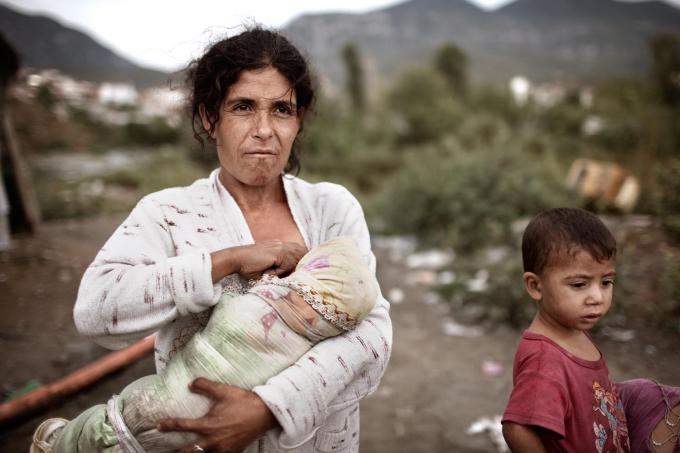
In a response to a written question of MEP Monica Matovei considering the phenomenon of child marriages in Albania, EU Commissioner Johannes Hahn has declared that the Albanian government should undertake action to criminalize forcing children into child marriage. So far, the Albanian government has made no attempt to do so, in spite of several rounds of Penal Code reform.
Commissioner Hahn declared that the Albanian government also received €6 million from the EU to improve the situation of the Roma and Egyptian minorities in the country. Instead, the government has consistently thrown these communities out of their houses, violating their human rights.
It should also be noted that the crimininalization of child marriages belongs to the government’s duty to guarantee the human rights of the Albanian population, and especially minorities. This is one of the five conditions for the opening of EU accession negotiations.
MEP Matovei asked the following question:
Child marriage in Albania is a complex issue. Poverty, the lack of value placed on girls’ education, geographical isolation, social exclusion, trafficking and emigration — together with attitudes towards women’s sexuality and role in society — are all influential factors. According to Unicef, 1 out of 10 girls in Albania is married before the age of 18, while the Human Development Research Centre has highlighted the fact that a great part of these marriages are conducted through mediation with third parties without the consent of the wife/daughter. Moreover, the Criminal Code of Albania does not criminalise the phenomenon, which in Albania is notorious, particularly in rural and remote areas where a patriarchal mentality and poverty reign. The risks for the child spouse, such as sexual abuse, abortion and pregnancy complications, are high.
What does the Commission plan to do to rectify the situation and to ensure that Albania criminalises forced child marriage and child marriage under a certain age?
The response of EU Commissioner Johannes Hahn was as follows:
The Commission is aware that child marriage remains a concern, particularly amongst members of certain vulnerable groups. Underage marriages occur mostly in rural areas and are observed amongst Roma children, as highlighted in the 2016 Commission Report on Albania. The Commission is aware of concerns from civil society organisations monitoring this practice, which point out that girls as young as seven and boys as young as nine were ‘considered’ married (i.e. promised away). Some non-governmental organisations (NGOs) also report that early and forced marriages occur in rural communities as part of human trafficking schemes, with parents consenting to underage daughters marrying older foreign men, who subsequently move them to other countries.
The Commission will continue to closely follow the situation in Albania and raise the issue with the authorities. Albania is party to the Council of Europe Istanbul Convention, which requires criminalisation of the act of forcing a child to enter into a marriage, and of luring a child to another country in order to force her or him to enter into a marriage. The Commission also maintains that Albania, as candidate country, should address all forms of exploitation, and should ensure that victims are offered protection and assistance, including gender and age-specific approaches.
It should be noted that the improvement of the socioeconomic conditions of vulnerable groups is specifically targeted through the Instrument for Pre-Accession Assistance: EUR 6 million is allocated to improve employment for Roma and Egyptian communities, to increase their participation in local development, improve their access to equitable, inclusive and decentralised services and promote their integration in society.

